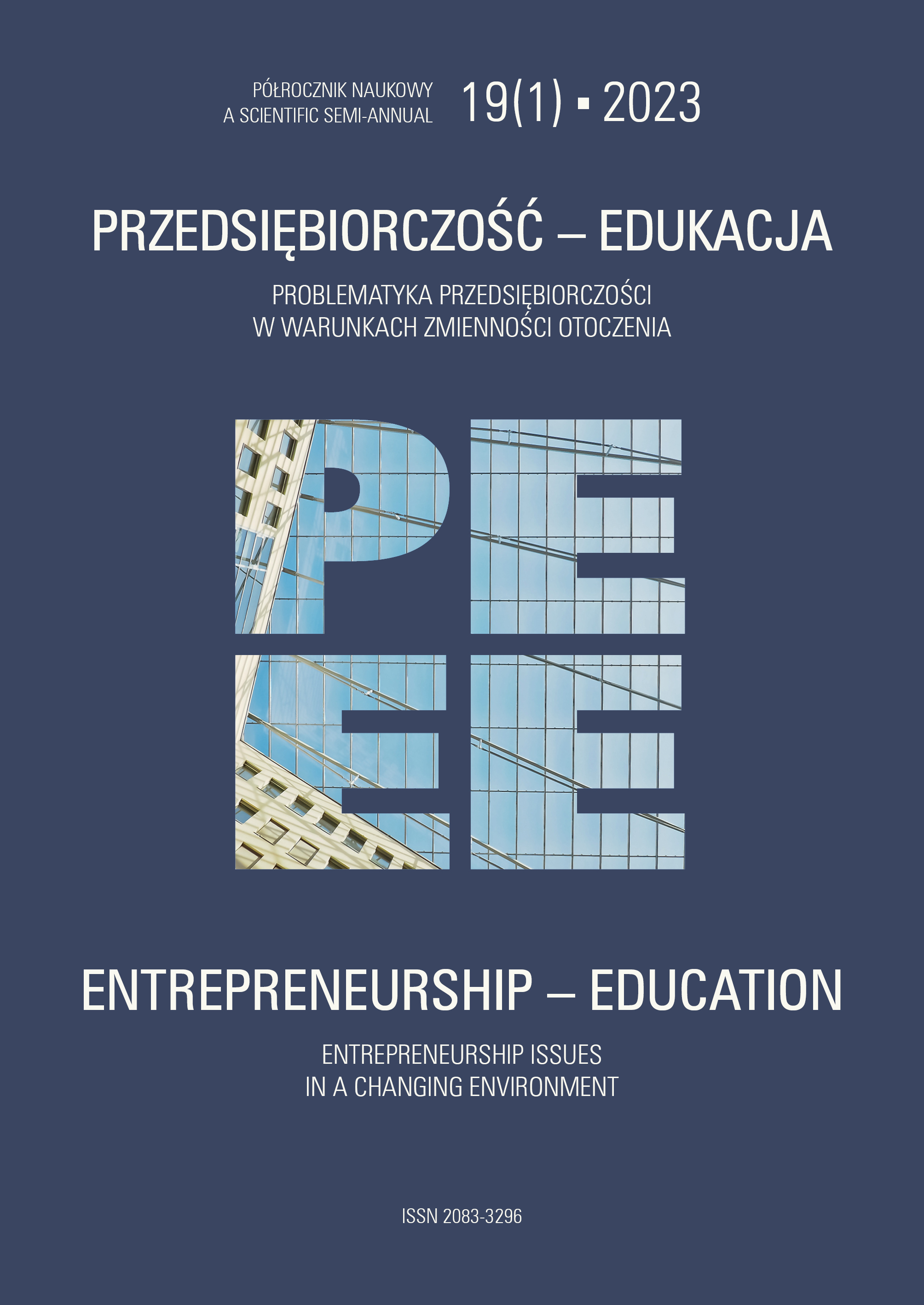Participation of parents in the remote teaching process – revealed problems and valuable innovation in the opinion of school principals in the Wielkopolska region (Poland)
DOI:
https://doi.org/10.24917/20833296.191.9Słowa kluczowe:
students' parents, school principals, distance learning, Wielkopolska region, COVID-19 pandemicAbstrakt
The findings presented in this paper are part of the comprehensive research carried out within the “Diversification of Social Attitudes in the Sphere of Educational Services during a Pandemic” project. This study examines the challenges that emerged during remote learning, focusing on parents’ involvement in their children’s learning process, as perceived by school principals. The conclusions are based on questionnaire interviews with principals of 36 randomly selected schools throughout the Wielkopolska region (Poland). The study spanned the second semester of the 2019/2020 school year and the first semester of 2020/2021. Several issues were identified in the interviews, including communication difficulties with students, lack of skills of teachers and students to work remotely, insufficient IT infrastructure at school and home, financial deficits impeding the purchase of new equipment, and a decline in students’ mental health. These problems were primarily related to the family (home) situation of students and the participation of parents in solving these problems. No significant spatial differences were identified with respect to the opinions of school principals from different poviats of the Wielkopolska region. However, differences in opinions were observed depending on the level of the school. A distinctive issue raised mainly by primary school principals was the participation of parents in lessons and their tendency to complete tasks or even write tests for children, as well as the frequent baseless excuses for absences and unfinished tasks. In contrast, principals from both general and vocational secondary schools generally agreed that parental assistance was marginal.
Bibliografia
Bhamani S., Makhdoom A.Z., Bharuchi V., Ali N., Kaleem S., Ahmed D. (2020). Home learning in Times of COVID: Experiences of Parents. Journal of Education and Educational Development, 7(1), 9-26. doi: 10.22555/joeed.v7i1.3260
Bogacka, E., Hauke, J., Tobolska, A., Weltrowska, J. (2021). Diversification of social attitudes of students and teachers from the Greater Poland Voivodeship during the COVID-19 pandemic. Bogucki Scientific Publishers, Poznań, pp. 197.
Connor C., De Valliere N., Warwick J., Stewart-Brown S., Thompson A., (2022). The COV-ED Survey: exploring the impact of learning and teaching from home on parent/carers’ and teachers’ mental health and wellbeing during COVID-19 lockdown. BMC Public Health, 22, 889. doi: 10.1186/s/12889-022-13305-7
Garbe A., Ogurlu U., Logan N., Cook P., (2020). COVID-19 and Remote Learing: Experiences of Parents with Children during the Pandemic. American Journal of Qualitative Research, 4(3), 45-65. doi: 10.29333/ajqr/8471
Gorzeńska O., Grąbczewska A., Radwan M., Sijko K., Śliwowski K., Szala M., Tarkowski A., Witkowski J., (2020). Problem wykluczenia cyfrowego w edukacji zdalnej. Ekspertyza 3. Fundacja Gospodarki I Administracji Publicznej (The problem of digital exclusion in distance education. Expertise 3. Foundation of Economy and Public Administration), Open Eyes Economy Summit. Downloaded from: https://oees/pl/ekspertyzy (access date 28.07.2021).
Güvercin D., Kesici A.E., Akbaşh S., (2022). Distance Education Experiences of Teacher-Parents during the COVID-19. Athens Journal of Education, 9(4), 593-614.
Haller T., Novita S., (2021). Parents’ Perceptions of School Support During COVID-19: What Satisfies Parents? Frontiers in Education. doi: 10.3389.feduc.2021.700441
Librus, (2020a). Nauczanie zdalne. Jak wygląda w naszych domach. Raport z badania ankietowego (Remote learning. What it looks like in our homes. Survey report). Katowice. Downloaded from: https://files.librus.pl/articles/00pic/20/04/09/librus/a_librus_raport_ nauka_zdalna_LS_LR_raport.pdf (access date 14.07.2021).
Librus, (2020b). Nauczanie zdalne. Jak zmieniło się na przestrzeni czasu. Raport nr 2 z badania ankietowego (Remote learning. How it has changed over time. Report No. 2 on the survey), Katowice. Downloaded from: https://files.librus.pl/articles/00pic/20/05/29/librus/Librus_ RAPORT2_nauczanie_zdalne_maj2020.pdf (access date 14.07.2021).
Ptaszek G., Stunża G.D., Pyżalski J., Dębski M., Bigaj M., (2020). Zdalna edukacja – co się stało z uczniami, ich rodzicami i nauczycielami? (Remote education - what happened to students, their parents and teachers?). Gdańskie Wydawnictwo Psychologiczne Sp. z o.o., Gdańsk. ISBN 978-83-7489-867-6. Downloaded from: https://zdalnenauczanie.org/wp-content/uploads/2020/10/edukacja-zdalna.pdf (access date 14.07.2021).
Schuck R.K., Lambert R., Wang M., (2021). Collaborating with parents during COVID-19 online teaching: special educator perspectives. Education 3-13. doi: 10.1080/03004279.2021.1967421
Sobiesiak-Penszko P., Pazderski F., (2020). Dyrektorzy do zadań specjalnych – edukacja zdalna w czasach izolacji. Prezentacja wyników badania (Principals for special tasks - remote education in times of isolation. Presentation of the research results). Downloaded from: https://lekcjaenter.pl/uploads/RAPORT_Dyrektorzy%20do%20zadan%CC%81%20specjalnych.pdf (access date 14.07.2021).
Pobrania
Opublikowane
Jak cytować
Numer
Dział
Licencja
Prawa autorskie (c) 2023 Przedsiębiorczość - Edukacja

Utwór dostępny jest na licencji Creative Commons Uznanie autorstwa – Bez utworów zależnych 4.0 Międzynarodowe.
Artykuły publikowane są zgodnie z warunkami licencji Creative Commons (CC BY-ND 4.0; uznanie autorstwa-bez utworów zależnych).

